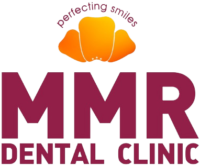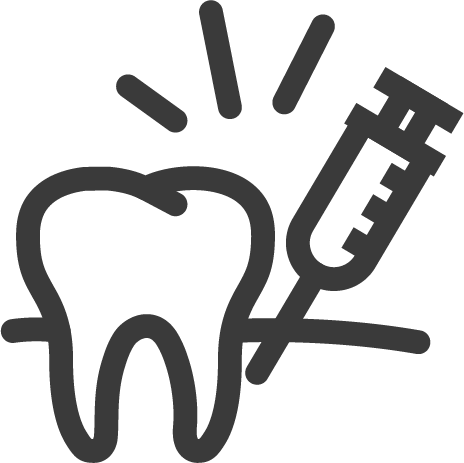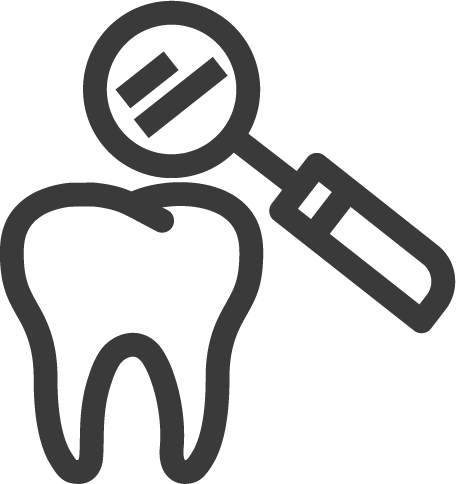FAQ's
Click on any question below
How often should I get my dental check-up done?
It is generally recommended to have a dental check-up every six months. During these visits, your dentist can examine your teeth, gums, and overall oral health, clean your teeth, and address any issues or concerns. However, the frequency of check-ups may vary depending on individual circumstances, such as your oral health history and risk factors. It’s best to consult your dentist to determine the appropriate interval between check-ups based on your specific needs.
How often should one get dental cleaning done?
The frequency of dental cleaning, also known as Oral prophylaxis, depends on individual factors such as oral health, oral hygiene habits, and the presence of certain risk factors. In general, it is recommended to have a dental cleaning done every six months. However, some individuals may require more frequent cleanings, if they have a history of gum disease, excessive plaque buildup, or other oral health concerns.
Should I use Mouthwash Daily?
It can be a beneficial addition to your oral hygiene routine. Mouthwash can help freshen your breath, kill bacteria, and reach areas of the mouth that may be difficult to clean with brushing and flossing alone. It can also provide additional protection against tooth decay and gum disease. However, it’s important to consult a dentist regarding the type of mouthwash that is appropriate for your needs. Some mouthwashes contain alcohol, which can cause dryness and irritation in some individuals. In such cases, alcohol-free mouthwashes are a better option. Additionally, mouthwash should not be used as a substitute for proper brushing and flossing.
Are dental X-rays safe?
Dental X-rays are generally considered safe, with very low levels of radiation exposure. The amount of radiation used in dental X-rays is minimal and well within acceptable limits. The benefits of dental X-rays outweigh the potential risks, as they play a crucial role in diagnosing and monitoring various dental conditions that may not be visible during a visual examination. In our clinic, x rays are only used when necessary.
What is tooth Sensitivity and why do I have it?
Tooth sensitivity refers to a common condition where individuals experience discomfort or pain when their teeth are exposed to certain stimuli, such as hot or cold temperatures, sweet or sour foods, or even cold air. It occurs when the underlying dentin, which is the layer beneath the tooth enamel, becomes exposed. Dentin contains tiny tubes called dentinal tubules that connect to nerve endings, and when they are exposed, external stimuli can trigger sensitivity and discomfort. Several factors can contribute to tooth sensitivity, including enamel erosion due to acidic foods or beverages, aggressive brushing or using a hard-bristled toothbrush that can wear down the enamel, gum recession, tooth grinding (bruxism) or tooth decay. It’s important to consult a dentist to determine the underlying cause of your tooth sensitivity and receive appropriate treatment for it.
Is it normal to experience sensitivity after teeth cleaning?
Yes, it is quite normal to experience some degree of sensitivity after teeth cleaning. During the cleaning process, plaque and tartar are removed, which can sometimes expose more sensitive areas of your teeth. This temporary sensitivity usually subsides within a few days. It’s a sign that your oral health is being maintained and that your teeth and gums are becoming healthier. If the sensitivity persists or is severe, it’s a good idea to consult your dentist for further evaluation and recommendations to alleviate any discomfort.
Does cleaning cause harm to our teeth?
Professional cleaning of teeth does not cause harm; in fact, it is essential for maintaining good oral health. Regular brushing and flossing help remove plaque and food particles, preventing issues like cavities and gum disease. However, overzealous brushing with a hard toothbrush or abrasive toothpaste can lead to enamel erosion and gum damage. Professional dental cleanings are crucial for preventing more serious dental problems. It’s important to strike a balance between thorough cleaning and avoiding excessive force to ensure the health and longevity of your teeth. Consult the Dentists at MMR Clinic for guidance on effective and safe cleaning practices.
What is the difference between RCT and Filling?
Root Canal Treatment (RCT) and dental fillings serve different purposes in treating tooth problems. A dental filling is used to repair a small cavity or minor tooth damage caused by decay. It involves removing the damaged tooth structure and filling the space with a material like composite resin to restore the tooth’s shape and function.
On the other hand, Root Canal Treatment (RCT) is a more extensive procedure designed to save a tooth with deep decay or infection. It involves removing the tooth’s pulp (the inner, sensitive part) and cleaning and sealing the root canals to prevent further infection. RCT is typically required when the damage or infection is severe, and a filling is insufficient to restore the tooth.
Does one have to get a filling done as soon as one spots a discolouration on the tooth?
What is good age to take a child to a dentist?
It’s recommended to take a child to the dentist at a young age, typically around their first birthday or within six months of their first tooth erupting. Early dental visits help in establishing good oral hygiene habits and enable the dentist to monitor the child’s oral development. These early visits are often more about familiarizing the child with the dental environment and providing guidance to parents on proper oral care for their little one. By starting dental visits at an early age, parents can lay the foundation for a lifetime of good oral health and address any potential issues early on.
Is dental treatment painful?
Dental treatment’s level of pain or discomfort can vary depending on the type of procedure, individual pain tolerance, and the dentist’s expertise. Many dental treatments, especially routine cleanings and fillings, are relatively painless and cause only minimal discomfort. Dentists often use local anaesthesia to numb the area being treated, ensuring patients feel no pain during the procedure. However, more complex or invasive treatments, such as root canals or extractions, might involve some post-treatment discomfort. With advancements in dental technology and anaesthesia, the goal is to make dental treatments as comfortable and pain-free as possible, ensuring that patients can maintain their oral health with confidence. Discussing any concerns about pain or discomfort with your dentist can help tailor the treatment to your comfort level.
"I'm apprehensive", "I don't like needles", "I hate dentists", what do I do?
If you’re feeling apprehensive, have a fear of needles, or dislike going to the dentist, it’s essential to communicate your concerns with your dental provider. We, at MMR Dental are experienced in helping patients with dental anxiety and phobias. We can offer various techniques and options to make your visit as comfortable as possible. Open communication with your dentist is key to addressing your fears and working together to find a suitable solution. Remember, maintaining your oral health is vital, and modern dentistry offers many ways to ensure your comfort during procedures.
What causes gum recession?
Gum recession, where the gum tissue pulls back from the teeth, can be caused by several factors. The most common cause is gum disease, which results from the accumulation of plaque and tartar, leading to inflammation and tissue damage. Aggressive or improper tooth brushing, using a hard-bristle toothbrush, or brushing too vigorously can also contribute to gum recession. Other factors include genetic predisposition, hormonal changes, tobacco use, and teeth grinding. Additionally, malaligned teeth and piercings that rub against the gums can lead to recession. Identifying and addressing the underlying cause is essential to prevent further gum recession and maintain good oral health. Regular dental check-ups can help monitor and manage this condition.
Are dental implants safe? When should I consider dental implants?
Dental implants are safe and have become a widely accepted and effective option for replacing missing teeth. The safety and success of dental implants largely depend on the patient’s overall health, oral hygiene, and the expertise of the dental implant provider. Dental implants can be considered when you have one or more missing teeth and want a permanent and natural-looking solution. They are especially recommended if you are in good general health, have healthy gums, and sufficient jawbone density to support the implant. A consultation with our Implantologist at MMR Dental can help determine if dental implants are the right option for you and discuss the potential benefits and any associated risks.
Is it safe to get dental treatments done while I am pregnant?
Getting dental treatments while pregnant can be safe and, in some cases, essential for maintaining your oral health during pregnancy. It’s generally best to avoid elective dental procedures during the first trimester when the foetus is developing, but emergency procedures and routine check-ups and cleanings are usually safe throughout pregnancy. Inform your dentist about your pregnancy and any medications or special considerations, and they can adjust treatment plans as needed. Dental health is important during pregnancy as hormonal changes can make you more susceptible to gum problems. Therefore, addressing any dental issues early on is advisable. Always consult with your healthcare provider and dentist for personalized guidance and to ensure your safety during dental treatments while pregnant.
What is Orthodontic treatment?
It involves correction of malaligned teeth using either Braces or Aligners for better aesthetics & function. We correct forwardly placed teeth, crooked teeth, open bite, deep bite, crossbites & TM Joint problems caused by mal-occluded teeth.
Why is Orthodontic treatment essential?
It helps improve aesthetics, functional capabilities, speech and thus enhancing your overall quality of life.
What is the right age for Orthodontic treatment?
It can be carried out at any age but the ideal age is before the pubertal growth spurt to allow us to carry out bone modulation for a better result.
Prepubertal means 10 to 11 years for girls & 11 to 12 years for boys. This is the best time to get your braces done for an optimum result.
Adult orthodontics is orthodontic treatment for individuals over 18 years of age. There are various factors that are taken into consideration. There is no upper age limit for this treatment. Visit our clinic to know if you are a good candidate for this treatment.
What are the benefits of Orthodontic treatment?
- Enhanced aesthetics
Orthodontic treatment does not just improve aesthetics but also boosts your self-confidence.
- Better Oral Health
This treatment corrects the malaligned teeth thereby improving your overall oral health. If the teeth are crooked the brush doesn’t reach all the surfaces thereby creating crevices for the bacteria to build up. This, in turn, will cause gum disease, cavities & other harmful problems.
- Improved speech and chewing
Well aligned teeth helps in better articulation of words. Thus, improving your speech. It also enhances the functional capabilities allowing you to chew your food better.
- Reduced headaches, neck & shoulder pain
A good orthodontic treatment reduces the neck & shoulder pain by correction of malaligned teeth. It also relieves any undue stress on your TM joint & prevents grinding.
- Relieves Sinus problems
Teeth that are malaligned can constrict your airways leading to problems in your sinuses.














